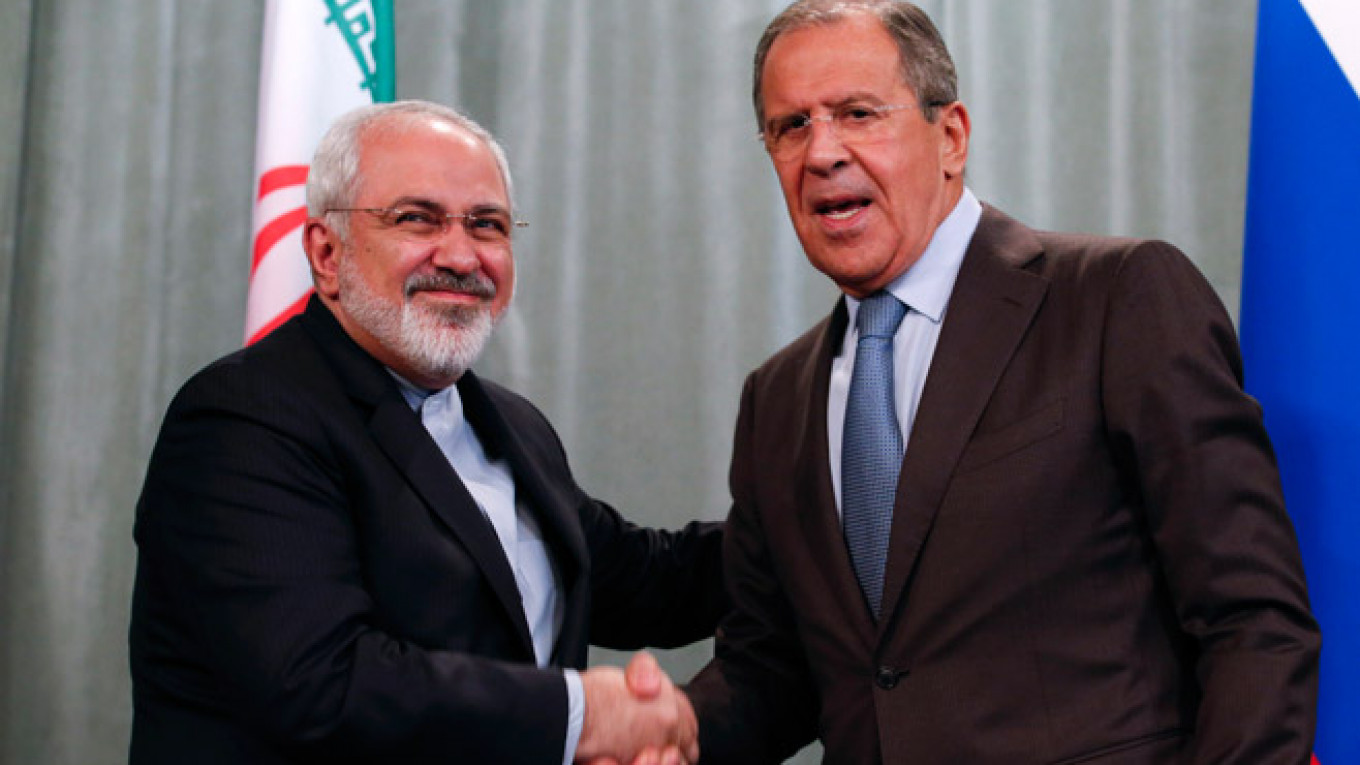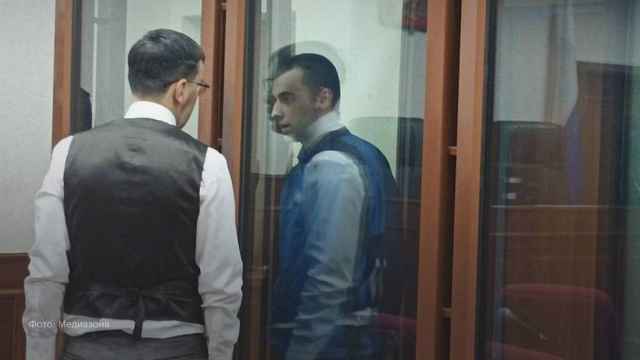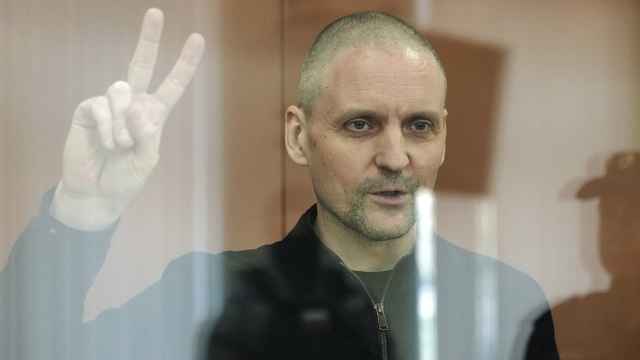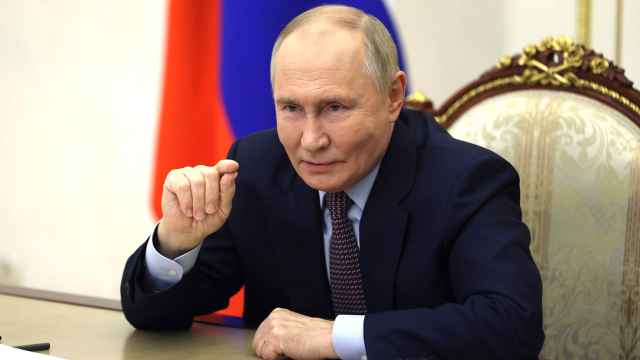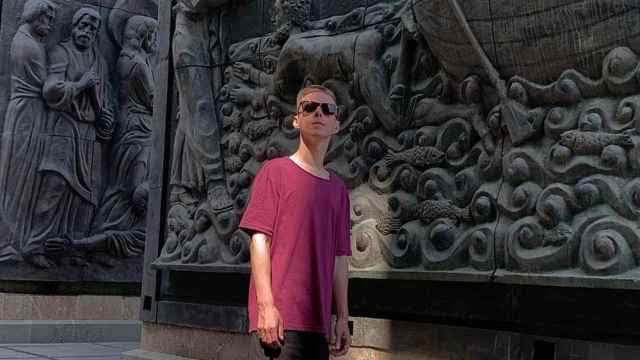As negotiations over the future of Iran's nuclear weapons program draw to an expected end in the next few days, the economic and political landscape of the Middle East and Central Asia are expected to change dramatically.
If negotiators reach a positive resolution, many expect a gradual lifting of stringent economic sanctions that have effectively cut off Iran from trade with the West. As the Islamic republic opens up, Russia, never a firm opponent of the government in Tehran, stands to gain immensely in both energy and arms deals.
But, while some in Moscow see a potential gold rush, others see a double-edged sword. The advent of Iranian energy resources on the open market may well push the price of oil down, thus further depressing Russia's already struggling economy.
Economic Cooperation Between Russia and Iran
The Moscow Times
Trade turnover between Russia and Iran in 2014 amounted to a little under $1 billion, the head of the Russian-Iranian Business Council, Rajab Safarov was quoted by news agency TASS as saying in December.
The two nations this year have been working to boost trade levels, beginning with an oil-for-goods swap confirmed by the Kremlin in April. The deal will see Russia supply grain, equipment and construction material to Iran in exchange for crude oil, news agency Reuters reported in April.
The oil-for-goods deal coincided with President Vladimir Putin's decision to lift a ban on exporting advanced S-300 air defense systems to Iran. The two sides have yet to agree on a delivery, however, as Russia refuses to sign a new contract before Iran removes a $4 billion lawsuit filed against Moscow for breaching the original $800 million 2007 contract.
The two sides also cooperate in the field of nuclear energy. Earlier this month, Russian state atomic energy firm Rosatom announced it would begin construction of a second nuclear power plant for Iran in the Islamic republic's Bushehr region later this year, Iran's Fars news agency reported.
Still, it is not likely that a timeline to lift sanctions will be set immediately if an Iranian nuclear deal is reached, said Petr Topychkanov, a political analyst at the Carnegie Moscow Center think tank.
This will give Russia time to position itself for a seat at the table when the Iranian gold rush begins, if ever, according to Chris Weafer, an analyst at the Moscow-based Macro Advisory consulting firm.
The Moscow Times looks at the pros and cons of the opening of the Iranian market for Russian interests.
Energy
The most important facet of the Iranian nuclear negotiations is the impact they will have on the global energy market. If Iranian reserves are opened to the world, they will drive down global prices and cut into Russian oil profits, a prime source of tax revenue.
Russia's economy is expected to shrink by around 3 percent year, pressured in part by low oil prices that have sunk from over 40 percent since their peak last summer at $115 a barrel.
But it is also an opportunity for Russian firms to import extraction technology to Iranian oil companies, if they can move fast enough, analysts said.
"Once a timeline for easing sanctions is even indicated, Tehran will be very crowded with oil and gas executives from all the world's energy majors," Weafer said.
According to BP's Statistical Review of World Energy, Iran's recoverable oil reserves amount to 157 billion barrels. In other words, Tehran has the world's third-largest stockpile of oil beneath the ground, behind Venezuela's 298 billion and Saudi Arabia's 266 billion. Also, according to BP, Tehran is sitting on the world's largest known gas reserves, totaling at 33.8 trillion cubic meters.
Still, Russia will have competition in the fight to develop Iran's resources. China's position in the frenzy will be bolstered by its $40 billion in investments in Iran over the past decade, and will be very aggressive in securing a piece of the action if sanctions are lifted, Weafer added.
Arms
Flush with newfound oil and gas wealth, Tehran might grow to become a major market for foreign military items after sanctions are lifted. For Russia, the world's second-largest arms exporter, this is not an opportunity to be missed.
Though it lags just behind the U.S. as the world's largest arms exporter, raking in over $13 billion last year, Russia's key export customers are expected to begin curtailing orders under the pressure of low oil prices. Unless new markets are reached, Russian arms exports are expected to plateau next year, according to international defense consultancy IHS.
Iran's military, which largely operates equipment bought decades ago, could potentially be a major customer for Russia's defense industry. Speaking to The Moscow Times in April, IHS senior analyst Ben Moores said Iran would need to spend about $40 billion to modernize its military.
However, there are factors that will limit Tehran from going on a massive military shopping spree, said Andrei Baklitsky, director of the Russia and Nuclear Nonproliferation Program at the Moscow-based PIR Center think tank.
"First, during the years of sanctions Tehran became self-sufficient in the production of many types of military equipment. Second, with the economy in dire conditions and the decreased [threat] of military attack, Iran under President [Hassan] Rouhani will probably prioritize welfare and growth over military spending," he said.
China too will be competing with Russia for major arms contracts with Iran. In recent years, China has mastered a number of weapons platforms that are comparable to Russian hardware.
Regional Politics
An unchained Iran might also pose troubles for Russia in Central Asia, which Moscow jealously guards as one of its traditional spheres of influence. In recent years Iran has begun to court the post-Soviet nations in Central Asia.
"The Kremlin faces a very tricky balancing act in Central Asia. Moscow wants to expand its business and political ties with China and Iran while also trying to limit their encroachment into a region it regards as Moscow's legitimate sphere of influence," Weafer said.
However, Topychkanov doesn't see competition between Moscow and Tehran as a major problem.
"I don't see anything dangerous or bad for Russia and Iran if they play competing roles [in the region]," he said.
"They are not small countries and they have their own agendas."
Contact the author at m.bodner@imedia.ru
A Message from The Moscow Times:
Dear readers,
We are facing unprecedented challenges. Russia's Prosecutor General's Office has designated The Moscow Times as an "undesirable" organization, criminalizing our work and putting our staff at risk of prosecution. This follows our earlier unjust labeling as a "foreign agent."
These actions are direct attempts to silence independent journalism in Russia. The authorities claim our work "discredits the decisions of the Russian leadership." We see things differently: we strive to provide accurate, unbiased reporting on Russia.
We, the journalists of The Moscow Times, refuse to be silenced. But to continue our work, we need your help.
Your support, no matter how small, makes a world of difference. If you can, please support us monthly starting from just $2. It's quick to set up, and every contribution makes a significant impact.
By supporting The Moscow Times, you're defending open, independent journalism in the face of repression. Thank you for standing with us.
Remind me later.


